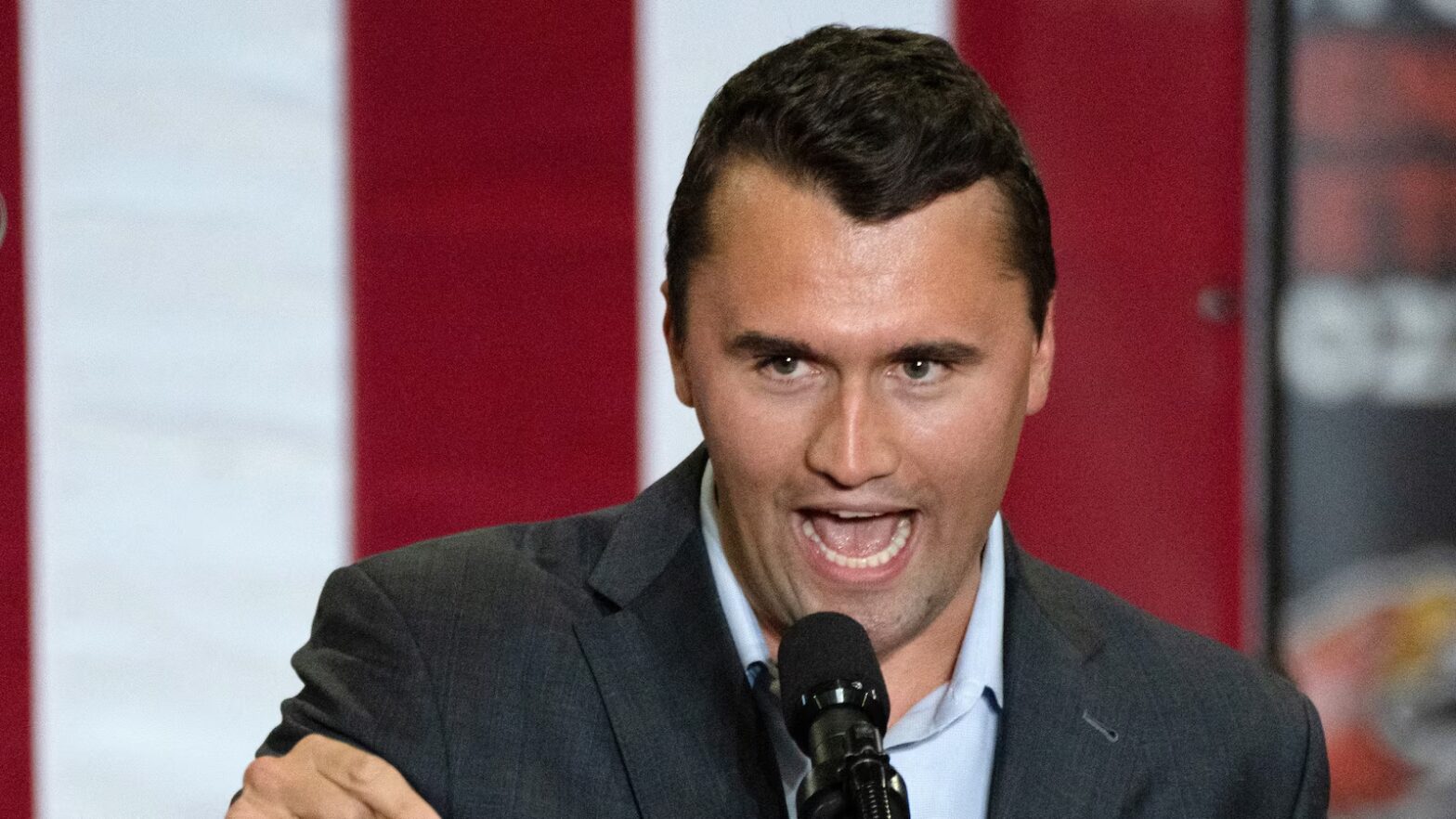Conservative commentator Charlie Kirk’s death in a campus shooting at Utah Valley University has sent shockwaves across American politics. The 31-year-old founder of Turning Point USA was fatally struck while hosting his signature “Prove Me Wrong” table, part of his “American Comeback Tour.”
While leaders across the political spectrum condemned the violence—as they should—Kirk’s passing also forces an uncomfortable but necessary reckoning with the legacy of a man whose career was built on polarizing rhetoric, culture-war agitation, and a worldview steeped in grievance politics. To mourn his death honestly requires confronting the ways he helped shape America’s fractured public square.
A Life Spent Preaching Division
Charlie Kirk’s rise was meteoric. Barely out of high school, he founded Turning Point USA in 2012 with the goal of mobilizing young conservatives on college campuses. The organization quickly grew into a multimillion-dollar operation with deep ties to right-wing donors, Fox News, and the Republican Party.
Kirk marketed himself as the youthful answer to liberal campus activism. His pitch was simple: universities were brainwashing students into progressive ideology, and he would fight back. To conservative parents anxious about their children’s values, Kirk offered reassurance that someone was holding the line. To students searching for belonging, he offered a tribe defined by opposition.
But beneath the branding of “free markets and limited government,” Turning Point became something else entirely. It was less a forum for serious policy debate than a training ground for culture warriors. Chapters across the country specialized in provocative stunts, such as building mock “free speech walls” plastered with inflammatory slogans or holding “affirmative action bake sales” where prices varied by race.
Events like Kirk’s “Prove Me Wrong” tour were staged as exercises in open dialogue, but in reality they were political theater. Dissenting students were baited into confrontations, often with cameras rolling. The goal was not persuasion, but humiliation—viral clips that could be circulated to prove liberal “snowflakes” couldn’t handle tough questions. It was performance politics, effective at building a following but corrosive to the principle of honest discourse.
Kirk was not interested in complexity, nuance, or building bridges. He thrived on simple binaries: patriots versus traitors, Christians versus “secular elites,” real Americans versus immigrants. His career was proof that division sells.
Hypocrisy at the Core
Kirk projected himself as a moral crusader for freedom and American values, but his record reveals a deep vein of hypocrisy that undercut his lofty rhetoric.
On Free Speech
Kirk loudly proclaimed himself a champion of free expression, railing against “cancel culture” and alleged liberal intolerance on campus. Yet he supported bans on books he considered dangerous, applauded government crackdowns on progressive protests, and vilified athletes for kneeling during the national anthem. His definition of free speech seemed to begin and end with his own ideological tribe.
On Faith and Family
As a self-styled Christian nationalist, Kirk insisted the United States was founded as a Christian nation and argued that secularism was eroding civilization. Yet his politics showed little of the compassion at the heart of Christian teaching. His rhetoric toward immigrants, the poor, and marginalized groups was scornful rather than empathetic. He seemed less interested in embodying the Beatitudes than in wielding religion as a political cudgel.
On Political Violence
Kirk condemned Black Lives Matter protests and labeled left-wing unrest as evidence of moral collapse. But when right-wing violence erupted—from militia movements to the January 6 insurrection—he downplayed or excused it. Turning Point affiliates were repeatedly linked to extremist rallies, though Kirk himself denied responsibility. His double standard was glaring: violence was unacceptable when committed by his enemies, but regrettably “understandable” when committed by his allies.
This selective morality was not incidental. It was central to his brand, a politics that treated “freedom” less as a universal principle and more as a weapon to be wielded against ideological foes.
The Culture Warrior Who Thrived on Hate
Kirk’s media presence, from his speeches to his daily podcast, was saturated with resentment. He portrayed universities as “factories for Marxists,” teachers as “indoctrinators,” and LGBTQ rights as a direct threat to civilization. His rhetoric on immigration often veered into echoes of the “Great Replacement” conspiracy theory, warning that elites were engineering demographic change to disempower conservatives.
For his young audience, he positioned himself as the one who dared to “say the quiet part out loud.” In practice, he was normalizing talking points that had long been considered fringe. With his polished, youthful persona, he laundered resentment into something aspirational for a generation of conservatives.
The real impact was cultural. Kirk helped popularize a style of politics where cruelty was recast as courage and scapegoating as entertainment. In his world, politics was not about governance or policy—it was war, and only the ruthless would survive.
Death Amid the Chaos He Helped Build
The circumstances of his death are tragic: a young man gunned down while speaking to students, his supporters traumatized, a university community shaken. No one, regardless of their politics, should die by violence. The condemnations from across the political spectrum were right and necessary.
But it is impossible to ignore the irony that Kirk was killed amid the very culture of hostility and confrontation he worked to amplify. His entire career was built on portraying America as locked in existential struggle, on dehumanizing opponents, and on insisting that compromise was weakness. That worldview didn’t just fuel his rise—it helped create the toxic environment of polarization and rage that now engulfs American society.
In death, Kirk has become another symbol of the dangerous cycle he helped perpetuate. His assassination illustrates the human cost of a politics built on antagonism.
A Nation at a Crossroads
Kirk’s assassination should not be sanitized into martyrdom, nor should it be dismissed as irrelevant. It highlights a turning point for American politics. The temptation will be to remember him only as a victim of violence, but the uncomfortable truth is that he was also an architect of the climate that made such violence more likely.
His career marked the shift in conservatism from a philosophy of ideas to a spectacle of outrage. The Republican Party of Reagan or even Bush spoke the language of policy, however flawed. The Kirk generation spoke the language of grievance. It was about winning at all costs, about framing disagreement as existential threat.
If his death prompts soul-searching—about the dangers of dehumanization, the costs of endless culture war, and the hollowness of spectacle politics—then perhaps some good can emerge from the tragedy. But if America simply mourns without reflection, the divisions Kirk exploited will continue to metastasize.
The Broader Legacy of Polarization
To understand Kirk’s place in history, we must situate him within the broader trajectory of American polarization. For decades, figures on both the left and right have warned about the decline of civic dialogue. But the rise of digital media and partisan cable news created incentives for outrage. Kirk was not unique in recognizing this, but he was remarkably skilled at capitalizing on it.
Turning Point USA mastered the art of virality. Its social media channels churned out memes, clips, and provocations designed to spark outrage on both sides. Kirk understood that anger spreads faster than reason, and he harnessed that to build influence.
But influence built on outrage is fragile. It poisons the civic culture it relies on. The very divisions Kirk fanned eventually consumed him. His career is a cautionary tale about what happens when politics becomes performance, when enemies are more useful than solutions, and when truth is secondary to clicks.
Remembering Without Romanticizing
The natural instinct in the aftermath of tragedy is to soften the edges of a person’s life, to emphasize their humanity and gloss over their flaws. That instinct comes from compassion, but it risks distorting history.
Charlie Kirk was not just a victim of violence; he was also a skilled propagandist who spent his life deepening division. To remember him honestly requires holding both truths at once: that his death is tragic, and that his life contributed to the very toxicity that now scars American politics.
Mourning should not erase accountability. Reflection should not erase compassion. If America is to learn from his passing, it must resist the urge to romanticize a legacy that was built on hostility.
Conclusion
Charlie Kirk’s passing closes a brief but consequential chapter in American political life. He was not merely a victim of political violence—he was also an architect of the toxic climate that made such violence more likely. His career embodied the shift from conservative philosophy to conservative spectacle, from dialogue to demagoguery.
If his death sparks an honest reckoning with the hypocrisy, hostility, and hate he championed, perhaps something constructive can emerge from the tragedy. But if America chooses only to mourn without reflection, the divisions Kirk amplified will continue to fester, and his legacy will live on in the chaos he helped create.
The lesson of Charlie Kirk’s life and death is not about one man alone. It is about a nation deciding whether it will continue down the path of antagonism and grievance, or whether it can build a public square where disagreement is not destruction, where politics is not war, and where freedom truly means freedom for all.

